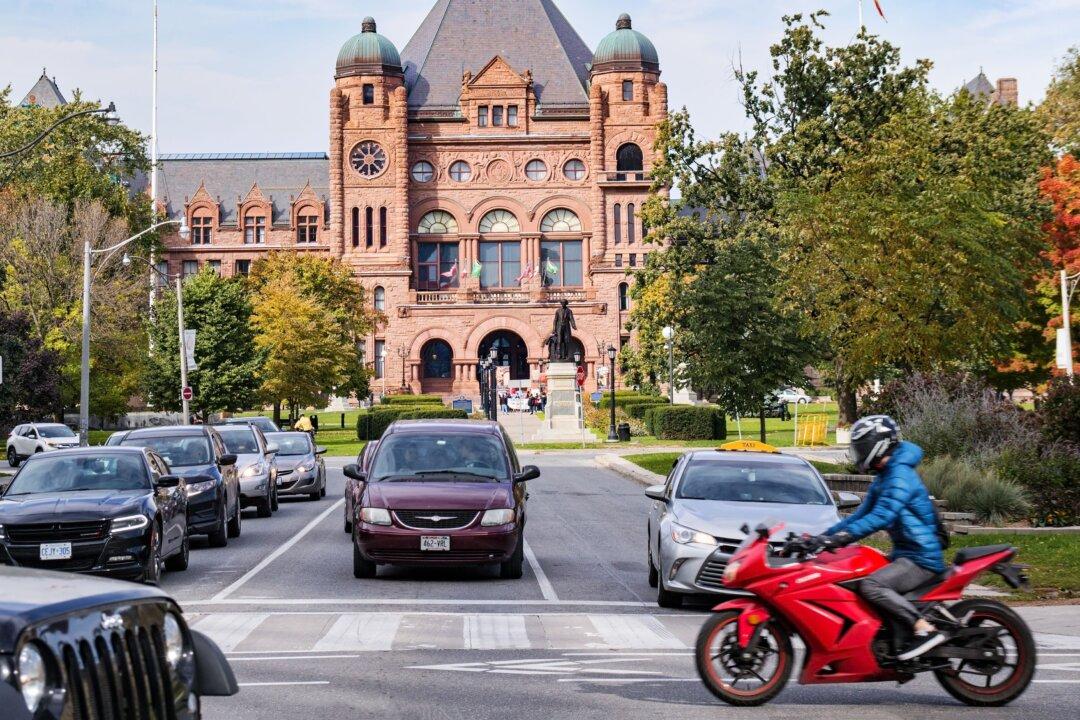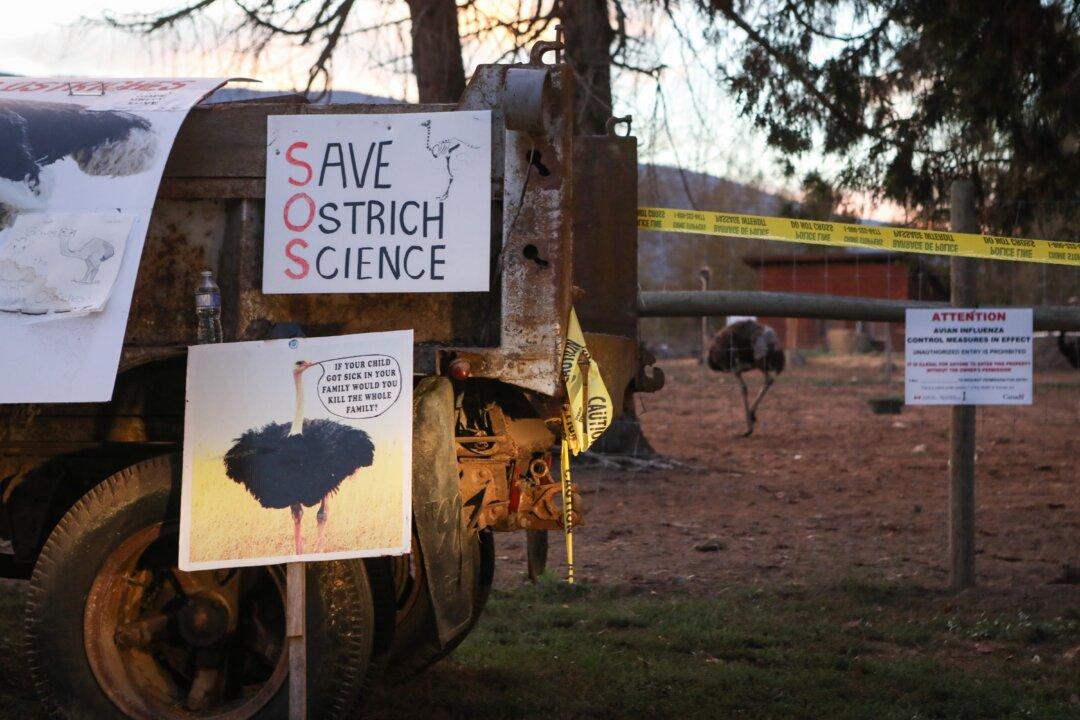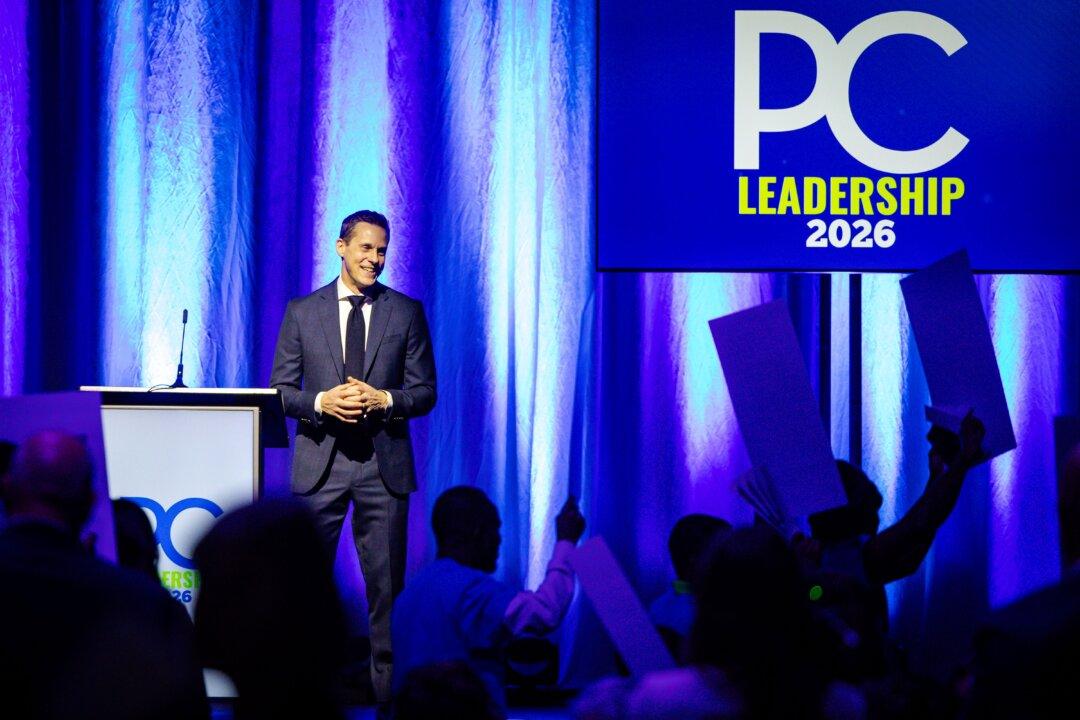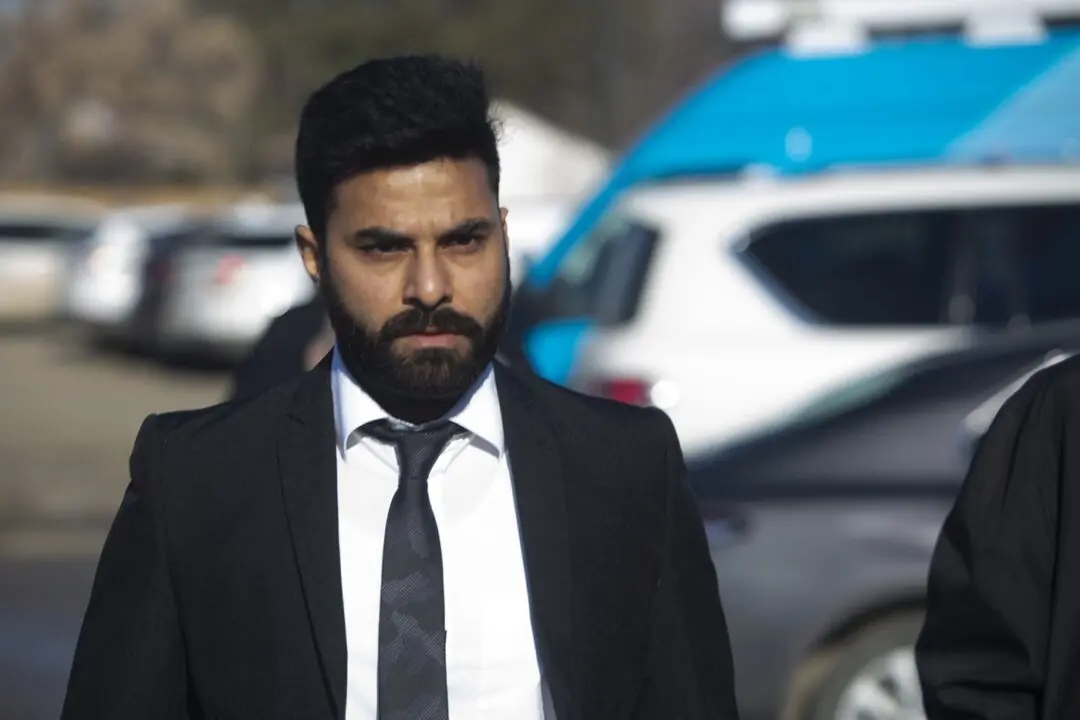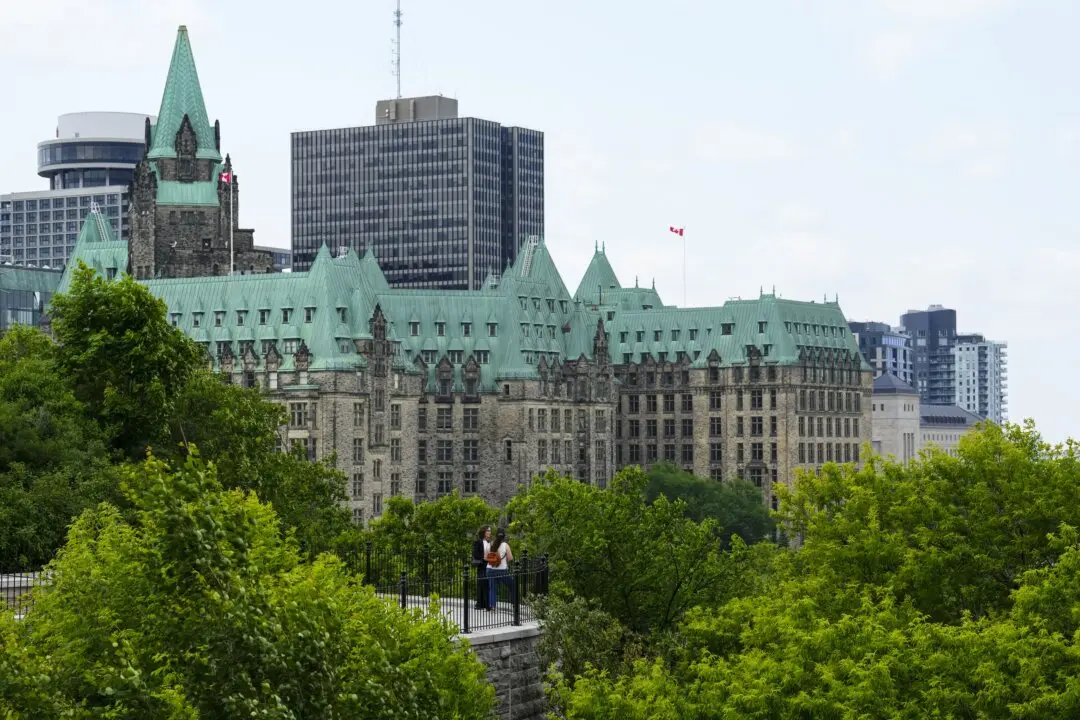The City of Toronto is hiking fines for drivers who get caught in the intersection after a traffic light change, something the city is calling “blocking the box.”
Fines for improper stops in an intersection will go up by 400 percent from $90 to $450 for most streets. Stopping in an area marked “community safety zone” in Toronto will now cost 317 percent more, up from $120 to $500.
